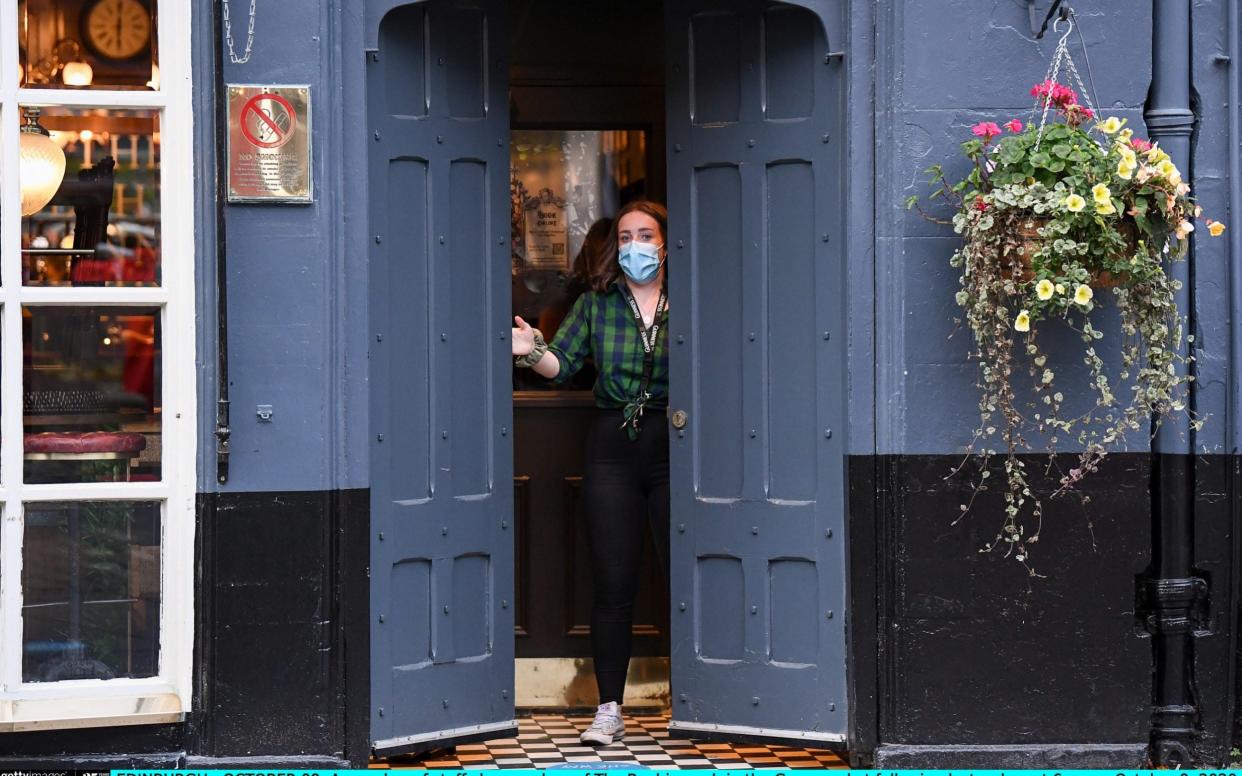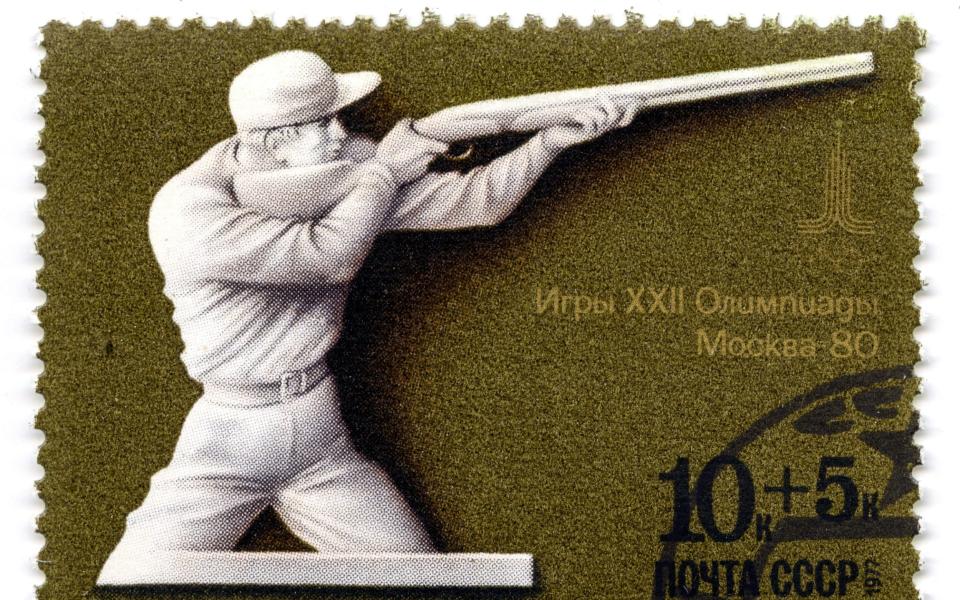Letters: Lockdowns are trashing the institutions that built a tolerant society

SIR – When I moved to England, I joined the Campaign for Real Ale because I was so impressed by the English pub and all that it stood for.
It was a social institution – a meeting place for families, friends, people of all ages and races, men, women and dogs of all shapes and sizes. It was an institution I wanted to support.
It is heartbreaking to see our own government ministers trash this symbol of British freedom and tolerance. They are ripping apart this vital piece of our social fabric, simply to show that they are doing something to fight the virus.
Yes, they are doing something all right, and I hope that they pay the price at the ballot box.
Jim McGregor
Nether Poppleton, North Yorkshire
SIR – This second wave was triggered by irresponsible people – those who organised and attended illegal gatherings, rushed to avoid quarantines and generally ignored social distancing. Repercussions of the kind we are seeing now were inevitable.
Just following the rules ourselves is clearly not enough. The country will be condemned to continuing waves unless we start supporting the Government and join forces with the police in enforcing regulations. If this means snitching for Britain, so be it.
Ken Hutson
York
SIR – Professor Karol Sikora (Comment, October 8) is right to expose the “disgusting” tactics of the pro‑lockdown lobby.
Anyone questioning the blind adherence to failing lockdown restrictions is, as Prof Sikora says, accused of wishing to let the virus rip and cause hundreds of thousands of deaths, or of not caring about “killing Granny”. Matt Hancock, the Health Secretary, is the scaremonger-in-chief.
The irony of this is that it was Mr Hancock’s department that let the virus rip through care homes, where many, including my mother, swiftly contracted Covid-19. She survived, unlike many others.
Having failed with Covid, however, Mr Hancock’s department finally managed to dispatch my mother by repeatedly withdrawing vital treatments for her other underlying conditions.
If we do not regain a sense of perspective, many more grannies are going to be killed as a result of the NHS pursuing a cruel, cynical and unjustified strategy of ignoring all other illnesses.
Ben Giesbrecht
Swansea
SIR – Last Friday I paid a six-figure tax bill for my company, year end to February 2020.
Next year, as a consequence of the Government’s policies, I estimate my tax bill will be less than 20 per cent of what I paid on Friday.
Who will fund the Chancellor’s recent generosity?
John Jackson
London NW1
Museums crisis
SIR – Many museums face an existential crisis. Damaging rounds of redundancies have been announced and the loss of skills and knowledge will take years to rebuild. This is in addition to the destruction of the career aspirations of the creative and committed people who work in our museums, usually for salaries that undervalue their talents.
Members of the British Association of Friends of Museums contribute over 250,000 hours of voluntary work to museums annually. However, volunteers should not be seen as a cost-cutting substitute for paid staff. We offer museum staff our solidarity as they face the anxiety of an uncertain future. Civic museums face budget cuts as local authorities prepare for a difficult future and, as a non-statutory service, museums are vulnerable.
We welcome the Culture Recovery Fund, but would like the Government to extend the programme into the next financial year. We ask that, in planning the post-Covid recovery, the Government recognises the part that museums play in the local and national economy and how they enrich lives.
British museums really merit the term world-leading. It would be a tragedy if they and their staff became collateral damage of the Covid crisis.
Dame Rosemary Butler
President, British Association of Friends of Museums
Alex Walker
Chairman, British Association of Friends of Museums
Bolton, Lancashire
Arnhem on screen
SIR – Amanda Mansell (Letters, October 10) says she understands that General Sir John Hackett would not have anything to do with A Bridge Too Far. I can confirm this, having worked for Sir John as his secretary in the Eighties. He told me many times that it was inaccurate and declined an invitation to go to the film preview.
Carole Beesley
Cheltenham, Gloucestershire
SIR – When I was a child, my father, Commander Cecil Crill, took me to see the film Sink the Bismarck!. He had served in HMS King George V in the real event.
In the middle of the film he stood up and announced to the entire audience: “It wasn’t like that.” I tried to overcome my mortification as we left.
However, later he showed me his photos of the Bismarck going down, so I knew what had really happened.
Jacqueline King
Castle Cary, Somerset
Care is better abroad
SIR – My wife and I have been in Greece for four weeks, staying in a coastal town with a population of about 30,000. We are both in our seventies and take medication prescribed by our British GP practice.
As I felt unwell I decided to see a local physician. We walked to his surgery and his secretary offered me an appointment the next day. I was given a thorough examination and an ultrasound scan. He told me that two of the items I had been prescribed by our GP were aggravating my condition and advised me to stop taking one and reduce taking another. The consultation, examination and scan took 40 minutes and cost €20. It is worth noting that the medication I was advised to stop taking was prescribed over the phone by my GP.
Regrettably, it is difficult or indeed impossible to get this level of primary care in Britain. Why is the Greek system so much better than ours?
M J Saxton
Nantwich, Cheshire
A-level limbo
SIR – An unintended consequence of Michael Gove’s war on modular exams is that schools and colleges are currently stuck in limbo, awaiting news about next summer’s exams. If modular A-levels were still the norm, A-level students in both sixth-form years could be preparing now for actual exams next month. Exam boards would have externally assessed data on which to award grades and would be less dependent on subjective teacher assessment (or, God forbid, another algorithm) in the event of a second year of cancelled exams.
The reforms were well-intentioned and normally it is right that A-level students should be assessed on their knowledge and understanding of two full years of study. Such assimilation is an important life skill and a stronger indicator of academic potential than short-term mastery of the components of a compartmentalised syllabus.
In the current circumstances, however, it would perhaps be worth considering the reinvention of modular A-levels in the short term. With notice, schools could adapt very quickly and universities would have something more substantial to rely on when awarding places.
Richard Russell
Headmaster, Colfe’s School
London SE12
The BBC’s job
SIR – If David Dimbleby thinks it’s the BBC’s job to be “a thorn in the side of government” (report, October 10), he has already disqualified himself from the chairmanship by reason of a total misreading of the BBC Charter, the Framework Agreement and the Ofcom Broadcasting Code, all of which require the corporation to commit itself to “achieving due impartiality in all its output”. (See also section 4 of the BBC’s editorial guidelines.)
If this misunderstanding has been widespread among other senior figures, it explains a great deal.
His Honour Peter Birts QC
London SW6
Convent manners
SIR – At my convent school in the Sixties (Sacred Heart, Chew Magna), we boys were taught to salute a nun (Letters, October 9) in public. So ingrained was the behaviour that it stuck with me for many years, much to the bemusement of nuns elsewhere in the country, who unexpectedly received full military-style honours from a scrofulous, long-haired lout.
Gareth D J Goodwin
Wells, Somerset
Freedom on show at Moscow’s 1980 Olympics

SIR – In 1980 some Western governments suggested to their athletes that they boycott the Olympic Games in Moscow (Letters, October 10). Some did, some didn’t, and as a result spectators in the Soviet Union were presented with a bewildering sight: foreign athletes who were somehow free to choose whether to attend, with no fear of state reprisals.
In 1984, the Soviet Union's tit-for-tat boycott of the Los Angeles games allowed no such freedom of choice, and made it clear whose citizens were free and whose were not.
The same point can be made again in 2022. Let China try to explain to its citizens how it is that foreign athletes enjoy freedoms Chinese athletes do not.
J P Redman
London NW11
SIR – Hugh Antrobus (Letters, October 10) writes: “There was a campaign to boycott the 1936 Berlin Olympics. History records the success of Jesse Owens and the failure of the Nazis.”
What history in fact records is that international participation in the Berlin Olympics represented both a mighty victory and a propaganda triumph for the Nazi regime.
While Jesse Owens performed brilliantly on an individual level, Germany was by far and away the most successful country overall, gaining a total of 89 medals, while the United States came second with 56 medals.
Can Britain not this time do the honourable thing and withdraw from an event of which the prime function is to boost the comparably genocidal regime in Beijing?
Nikolai Tolstoy
Southmoor, Berkshire
Dickens’s courageous stand against slavery
SIR – I read with interest David Olusoga’s views on Charles Dickens (“Dickens was racist but I love reading him, says Olusoga”, October 11).
I would urge him to read Chapter 17 of Martin Chuzzlewit (1842), where the hero, young Martin, during his visit to America, sees his servant Mark Tapley talking to a porter, and asks him who the man is. “‘Why, sir,’ said Mark, taking him aside and speaking confidentially in his ear, ‘he’s a man of colour, sir ... A man and a brother, you know, sir,’ said Mr Tapley ... ‘A slave!’ cried Martin, in a whisper”.
Mark Tapley continues: “‘And now he’s a-saving up to treat himself, afore he dies, to one small purchase – it’s nothing to speak of, only his own daughter, that’s all!’ cried Mr Tapley, becoming excited. ‘Liberty forever! Hurrah! Hail, Columbia!’”
Dickens knew that these words would alienate a great number of Americans, who had feted him when he arrived in their country, but he had the moral courage to take that risk.
Dickens a racist? I think not.
Dr Norman Russell
Liverpool
Letters to the Editor
We accept letters by post, fax and email only. Please include name, address, work and home telephone numbers.
ADDRESS: 111 Buckingham Palace Road, London, SW1W 0DT
FAX: 020 7931 2878
EMAIL: dtletters@telegraph.co.uk
FOLLOW: Telegraph Letters on Twitter @LettersDesk

